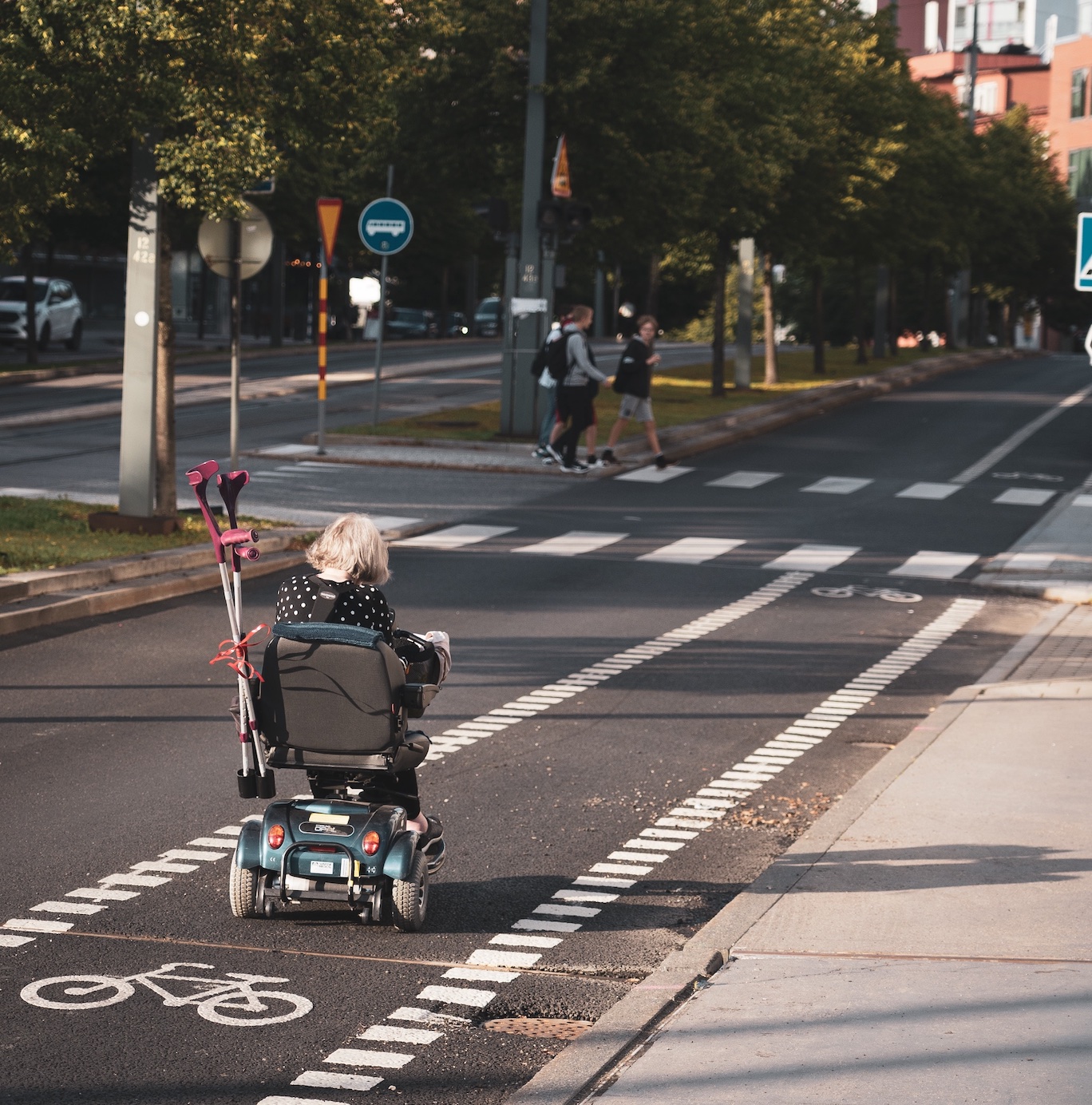Under the partial consent decree, the City has agreed, among other things, to devote a minimum of $44 million, and potentially up to $50 million, over the course of four years to the construction and/or remediation of thousands of curb ramps and the remediation of tens of thousands of square feet of sidewalks throughout Baltimore.
Baltimore, MD—The City of Baltimore and a class of pedestrians with mobility disabilities have reached a milestone settlement to increase access to the City’s curb ramps and sidewalks. The settlement, in the form of a partial consent decree, is the first big step in resolving claims brought on behalf of a class of persons with mobility disabilities alleging that the vast majority of curb ramps and sidewalks in Baltimore are not accessible and therefore violate federal disability rights laws, including the Americans with Disabilities Act (“ADA”) and Section 504 of the Rehabilitation Act of 1973 (“Section 504”).
Under the partial consent decree, the City has agreed, among other things, to devote a minimum of $44 million, and potentially up to $50 million, over the course of four years to the construction and/or remediation of thousands of curb ramps and the remediation of tens of thousands of square feet of sidewalks throughout Baltimore. The partial consent decree also requires Baltimore to ensure ongoing compliance with the requirements of the ADA and Section 504, to create new programs designed to increase sidewalk accessibility to Baltimore residents and visitors with mobility disabilities, and to improve its 311 system for requests and complaints related to the accessibility of specific intersections and sidewalks. In the third year of the partial consent decree, the Parties will begin negotiating a longer-term plan to make all of the City’s remaining curb ramps and sidewalks accessible to people with mobility disabilities. Read the partial consent decree.
“This partial consent decree puts in place the programs to ensure that Baltimore finally lives up to the promises of the Americans with Disabilities Act, so that people with mobility disabilities can navigate around the City of Baltimore just as safely and to the same extent as everyone else,” said Madeleine Reichman, Senior Staff Attorney at Disability Rights Advocates.
“Years of advocacy have led to this milestone toward a more accessible Baltimore. We’re grateful to have partnered with the IMAGE Center, the Baltimore area’s Center for Independent Living, our three named plaintiffs, and community members to make it possible, and we look forward to working with the City to ensure the obligations of the decree are met and that progress toward full accessibility continues,” said Gabriel Rubinstein, Managing Attorney at Disability Rights Maryland.
“Federal and state disability access laws were enacted decades ago to provide persons with disabilities an equal opportunity to fully participate in civic life,” said Tim Fox with Fox & Robertson. “Today, we stand together with the City of Baltimore to ensure that people with disabilities can travel independently throughout their communities. Inaccessible curb ramps and sidewalks prevent persons with disabilities from being fully integrated in their communities.”

The case is Goodlaxson, et al. v. Mayor and City Council of Baltimore, Case No. 1:21-cv-01454-JKB (D. Md.), filed on June 10, 2021 by three individuals with mobility disabilities and the IMAGE Center of Maryland on behalf of a class of pedestrians with mobility disabilities. The Court certified the following organizations and firms as counsel for the class: Disability Rights Advocates, Disability Rights Maryland, Fox & Robertson, and Dardarian Ho Kan & Lee (formerly Goldstein, Borgen, Dardarian & Ho).
Disability Rights Advocates is the leading national nonprofit disability rights legal center. Its mission is to advance equal rights and opportunity for people with all types of disabilities nationwide. DRA represents people with all types of disabilities in complex, system-changing class action cases. For more information, visit www.dralegal.org.
Disability Rights Maryland (DRM), a non-profit 501(c)(3) organization, is Maryland’s designated Protection & Advocacy agency. DRM is federally mandated to advance the civil rights of people with disabilities. We provide free legal services to Marylanders of any age with all types of disabilities (developmental, intellectual, psychiatric, physical, sensory, learning, traumatic brain injury), who live in facilities, in the community or who are homeless. For more information, visit www.disabilityrightsmd.org.
Fox & Robertson is a law firm based in Denver, Colorado with a practice focused on impact disability rights litigation as well as individual advocacy and education. More information is available at www.foxrob.com.
Dardarian Ho Kan & Lee (formerly Goldstein, Borgen, Dardarian & Ho) is one of the oldest and most successful plaintiffs’ public interest class action law firms in the country. DHKL represents individuals against large companies and other entities in complex class and collective action lawsuits. The firm has three primary practice areas: employment discrimination, wage and hour violations, and disability access, and also brings other public interest cases, including voting rights and consumer cases. The firm has a national practice, litigating cases in federal and state courts throughout the country. www.dhkl.law


Join the conversation!